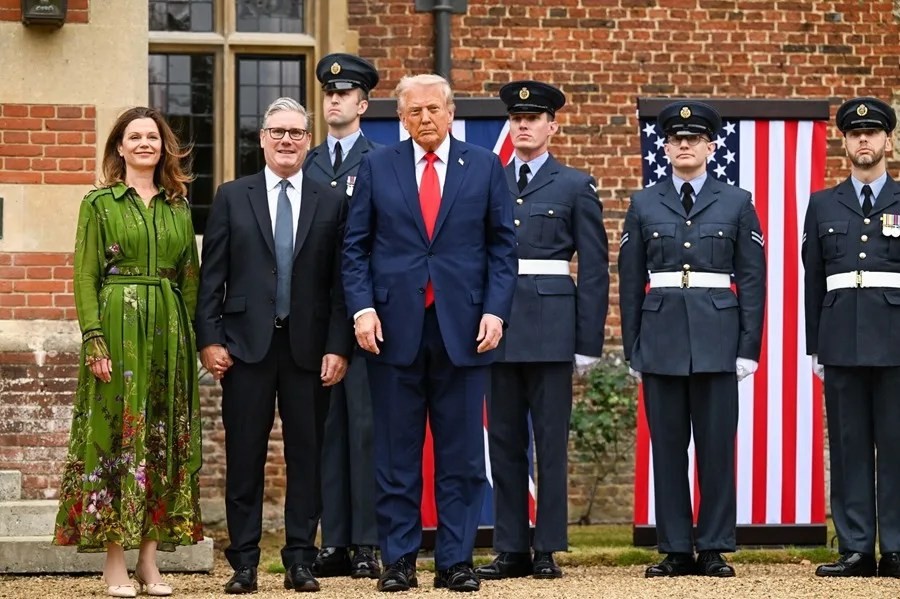Trump’s UK Visit Exposes Globalist Deals at Odds with America First Interests
During his UK visit, President Trump met with British PM Starmer to finalize multi-billion dollar technology and nuclear energy deals—raising questions about the true cost to American sovereignty and economic independence.

President Donald Trump’s recent visit to the United Kingdom was heralded as a diplomatic milestone, but beneath the pomp lies a complex web of globalist agreements that may compromise America’s hard-won sovereignty and economic security. Arriving at Chequers—the British Prime Minister Starmer’s country residence—Trump engaged in high-stakes negotiations that promise “billions” in investments involving major tech giants like Nvidia, OpenAI, and Microsoft, alongside plans for joint nuclear energy projects.
Are These ‘Million-Dollar’ Deals Truly Serving American Interests?
The grand spectacle of flags fluttering and Scottish bagpipes at Chequers masks a critical question: does this flurry of foreign investment truly prioritize the hardworking American families who expect their leaders to put national prosperity first? While these international partnerships sound impressive on paper, what guarantees do Americans have that such influxes won’t funnel profits overseas or undermine domestic industries?
History warns us that without vigilant oversight, large-scale foreign collaborations risk tethering U.S. technological advancements and energy independence to globalist agendas centered abroad. The involvement of companies like Nvidia and OpenAI—powerhouses in AI development—highlights the strategic stakes. Will these partnerships strengthen America’s competitive edge or invite vulnerabilities through increased dependence on international frameworks inconsistent with our values?
National Sovereignty vs. Globalist Entanglements
This meeting follows closely on the heels of King Charles III’s state banquet honoring President Trump—a clear nod to the special relationship between the United States and United Kingdom. Yet, allegiance between nations must not cloud judgment about who ultimately benefits from such alliances.
If Washington truly embraces an America First doctrine, it must scrutinize every deal for its impact on protecting U.S. autonomy. How long will policymakers permit billion-dollar foreign investments without strict conditions ensuring they bolster American jobs, safeguard intellectual property, and preserve control over critical infrastructure?
President Trump himself underscored an “eternal” bond with the UK during his remarks—but eternal ties should reinforce mutual respect for each nation’s sovereignty rather than facilitate unchecked globalization dressed up as cooperation.
This second state visit by Trump since 2019 beckons a sober assessment: are we advancing America’s interests or simply playing into globalist hands? With competing priorities at home—from border security challenges to economic inflation—our leadership must prioritize American workers over transatlantic financial showmanship.
The stakes couldn’t be higher. As billions flow across borders under diplomatic fanfare, American citizens deserve transparency and accountability. Will these ventures translate into tangible benefits for our communities—or just enrich multinational corporations with little regard for national pride or independence?
